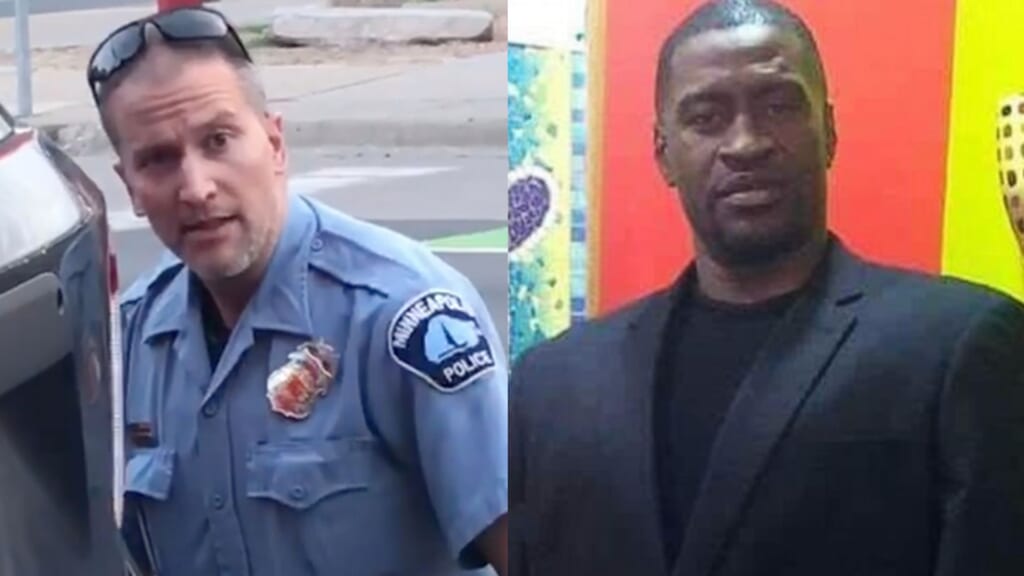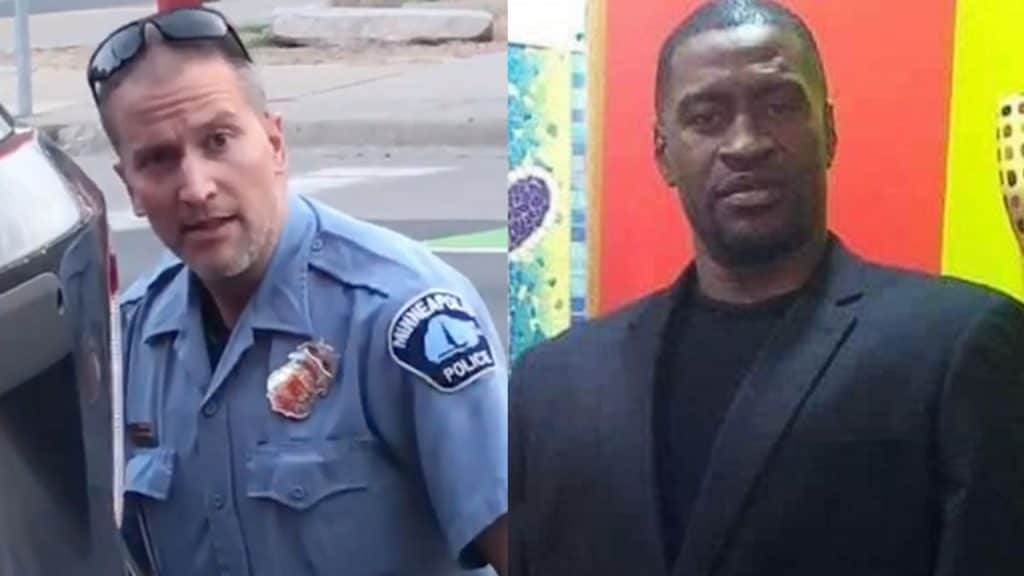Courthouse surrounded with barbed wire in preparation for Derek Chauvin trial
The former officer was granted permission to leave Minnesota due to ‘safety concerns’ as he awaits trial
The murder trial for former Minneapolis police officer Derek Chauvin is set to get underway next week, and construction crews are already hard at work turning the courthouse into an impenetrable fortress to block out the public.
City officials are having blockades installed to control potential protests at the Hennepin County Courthouse, the Minneapolis City Hall building, and the Hennepin County Jail. Per TMZ, concrete barriers, non-scalable fencing, and barbed wire are being erected around the buildings, as well as plexiglass installments for COVID-19 safety precautions.
In October, a judge granted Chauvin permission to leave Minnesota due to “safety concerns” as he awaits trial for his role in the death of George Floyd. theGRIO previously reported, under the conditions of his revised release, Chauvin had to “establish residency somewhere in the State of Minnesota or a contiguous state as soon as possible.”
Read More: Minority jail officers say they were prohibited from guarding Derek Chauvin
Chauvin was arrested in May 2020 and charged with second-degree murder, third-degree murder, and second-degree manslaughter in Floyd’s May 25 death. Bystander video which quickly went viral saw him placing a knee on Floyd’s neck for more than eight minutes until he lost consciousness and died.
Read More: Judge dismisses charge against ex-cop Derek Chauvin in Floyd’s death
“Please, please, please, I can’t breathe,” Floyd begged in one video. “My stomach hurts. My neck hurts. Please, please. I can’t breathe.”
Floyd’s death led to nationwide and global protests over police brutality and race relations.
The county medical examiner classified Floyd’s death as a homicide, with his heart stopping while he was restrained by police and his neck compressed, The AP reported. A summary report listed fentanyl intoxication and recent methamphetamine use under “other significant conditions” but not under “cause of death.”
Hennepin County District Court Judge Peter Cahill, who is presiding over Chauvin’s murder case, dismissed the third-degree murder charge in October. Thomas Lane, J. Kueng, and Tou Thao were also charged with aiding and abetting both second-degree murder and manslaughter. All four officers were fired. Chauvin is being tried separately from the three other former officers, who are scheduled to go on trial in August.

During the entire time that Floyd was pinned to the ground, “the officers remained in the same position: Chauvin knelt on Floyd’s neck, Kueng and Lane remained atop Floyd’s back and legs, and Thao continued to prevent the crowd of concerned citizens from interceding,” prosecutors previously said, The AP reported.
Meanwhile, the Minnesota Court of Appeals is mulling over whether to reinstate a third-degree murder charge against Chauvin, according to ABC News. The state statute notes that this charge only applies when a defendant kills someone “by perpetrating an act eminently dangerous to others and evincing a depraved mind.” Judge Cahill said in dismissing the third-degree murder charge that Chauvin only targeted Floyd, therefore the charge does not apply to his case.
Prosecutors also want to add aiding and abetting third-degree murder against Kueng, Lane and Thao
“They’re scared … they can’t get a conviction,” defense attorney Joe Friedberg said in an interview last week. “They’ve got a problem on their hands, so they want to muddy the waters with third-degree murder, which is not applicable. I don’t blame them.”
*theGrio’s Stephanie Guerilus contributed to this report
Have you subscribed to theGrio’s podcast “Dear Culture”? Download our newest episodes now!
TheGrio is now on Apple TV, Amazon Fire, and Roku. Download theGrio today!
The post Courthouse surrounded with barbed wire in preparation for Derek Chauvin trial appeared first on TheGrio.

